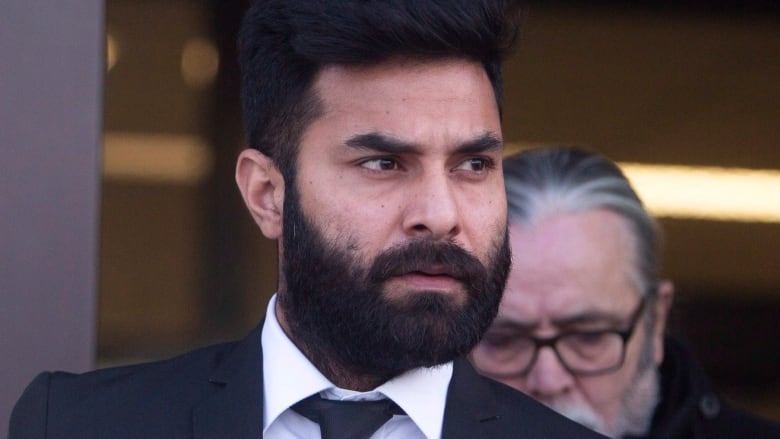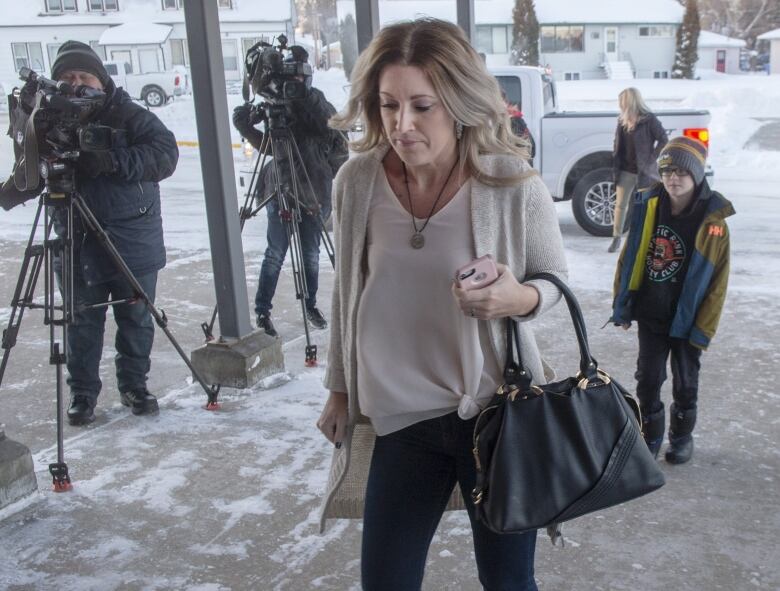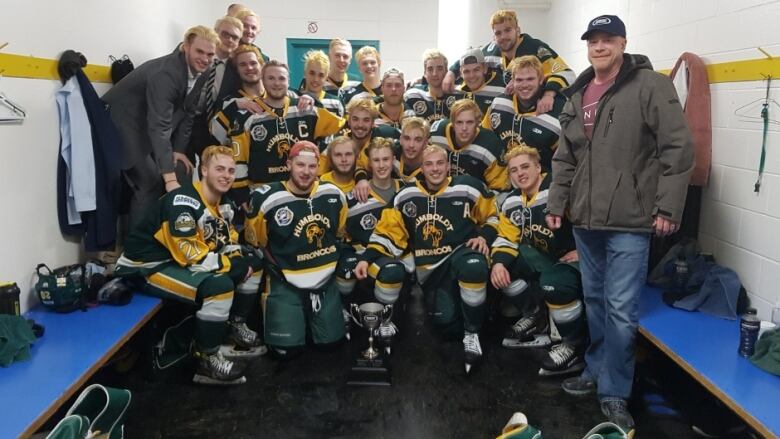'Not everybody can get there': Psychologist talks forgiveness in the Humboldt Broncos bus crash
'This is still normal grief,' says Stanford University Forgiveness Projects director Fred Luskin

As heard in a Melfort, Sask.,court during the sentencing hearing for Jaskirat Singh Sidhuthis week, some of those affected by the Humboldt Broncos bus crash forgave the driver who caused the crash. Others did not.
Sixteen people died in the crash involving the Saskatchewan hockey team's bus on April 6, 2018.Thirteen were injured. This past week, victim impact statements were read in court.
FredLuskin is the director oftheStanford University Forgiveness Projects a series of workshops and research projects centred around forgiveness training. Hesaid the event is stillraw, even 10 months on, and that the range of emotions between the families is normal.
"It hasn't even been a year. For a trauma that horrendous and a wound that unexpected, this is still normal grief," he said.
He said people deal with this sort of situation in one of two ways.
"One is to hold on tight and say, 'I'm never going to adapt to the change, this is too awful for me to make peace with,' and they're doing that to try to stay in mental control of what's going on," he said.
"The other way is to recognize that life with never be the same, and how do I make the best out of it?"

ChristinaHaugan, the wife of Broncos coachDarcyHaugan, was among those who offered forgivenessin court forSidhu, the semi driver who pleaded guiltyto 16 counts of dangerous driving causing death and 13 counts of dangerous driving causing bodily harm in connection with the crash.
"I forgive you," she said. Her husband wasamong those killed in the crash.
"The injustice and sadness is still there, but I've been forgiven for things I have done. If you ever want to know more aboutDarcy, come ask me."
Paul Jefferson the billet parent of Broncos players Parker Tobin, who died in the crash,and Tyler Smith, who was seriouslyinjuredalso echoed Haugan'swords of forgiveness.
"When he pled guilty, it was easier for me to say, 'I forgive,'" Jeffersontold reporters outside of court. "But I also know that grief is a journey, and I need to forgive to move on."
'I have no forgiveness'
The family ofConner Lukanalso read theirstatements.
"I have no forgiveness," saidLukan'smother RobinLukan. "I want you to know you have forever destroyed the family I worked to create I want you to feel the pain you have caused.I will never forgive this wrong."
Carol Brons, themother of Broncos athletic therapist Dayna Bronswho was also a victim of the crashsaid she hasn't forgivenSidhu, but is trying to, because her daughter would have wanted that.

Luskin said he understands why some people have already forgiven Sidhu in their process.
"When you realize that there's nothing you can do to alter the reality and the only thing you can do is alter your own, the only thing that feels OKis to try to at least be at peace and extend whatever goodwill you can."
For those who haven't yet forgiven or who won't get to that place, Luskin said it's important to acknowledge that feeling as valid as well.
"I can tell you, though, having spoken to so many people who have gotten there that they feel like a boulder has been taken off their back," he said.
"But the caution I have is we can't chain people who don't get there and we have to understand the value of kind of holding on, because some things are too hard for some people to encompass."
With files from CBC Radio's The Morning Edition and Jason Warick












_(720p).jpg)


 OFFICIAL HD MUSIC VIDEO.jpg)
.jpg)



























































































